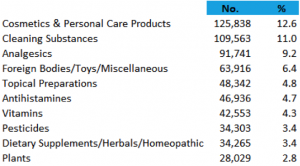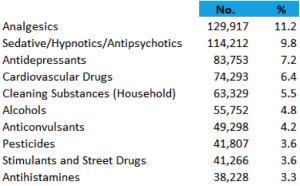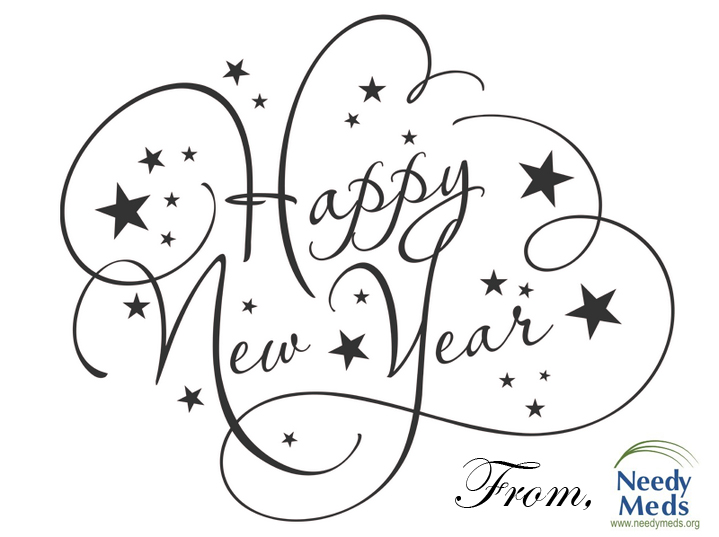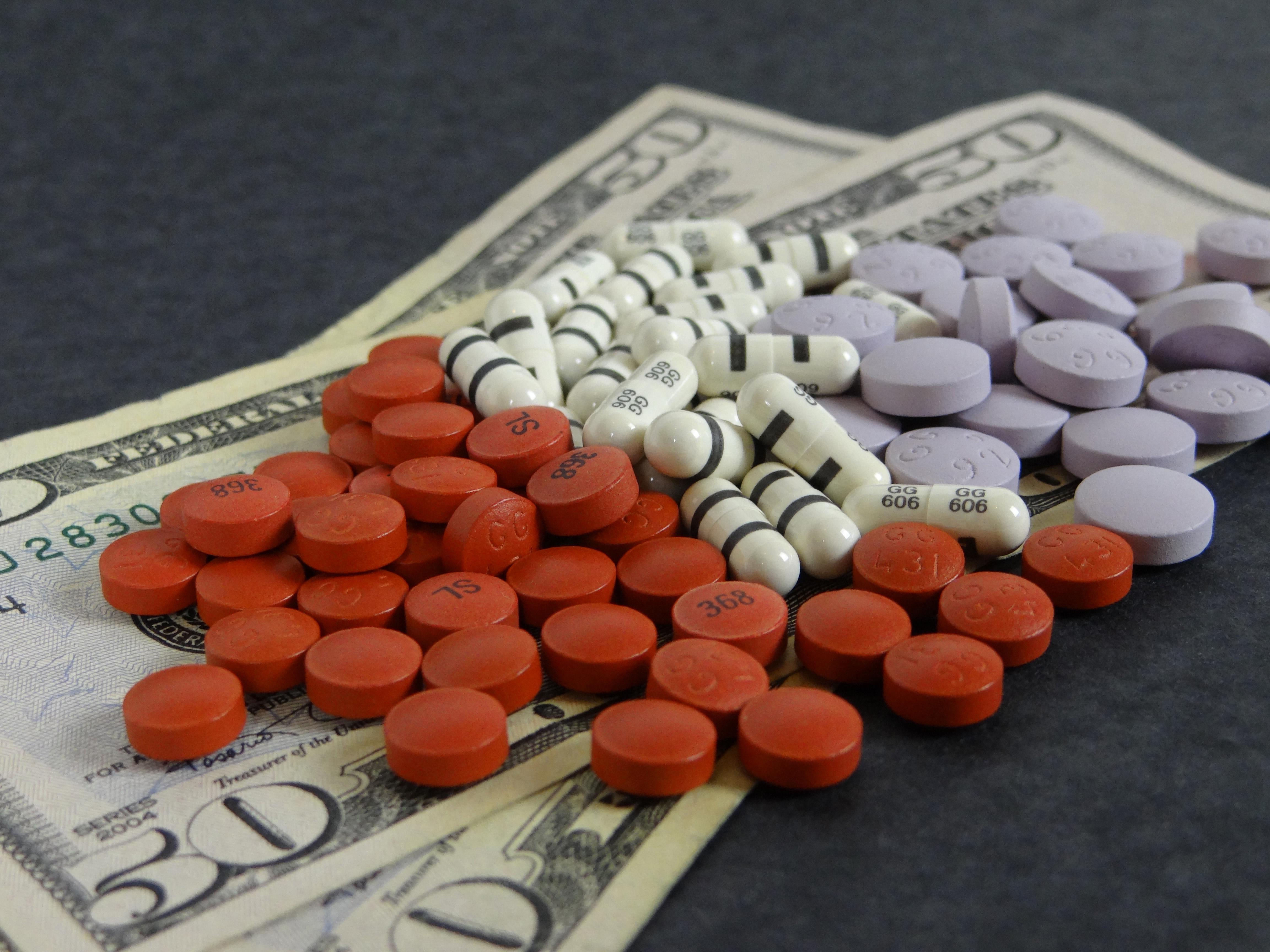Last Updated on October 21, 2024
 Poisoning is the number one cause of injury-related death in the U.S.. National Poison Prevention Week, sponsored by the National Poisoning Prevention Council during the third week in March, promotes poison prevention tips and the free emergency services provided by poison control centers, including the Poison Help hotline at 1-800-222-1222. Text POISON to 797979 to save the number in your smartphone.
Poisoning is the number one cause of injury-related death in the U.S.. National Poison Prevention Week, sponsored by the National Poisoning Prevention Council during the third week in March, promotes poison prevention tips and the free emergency services provided by poison control centers, including the Poison Help hotline at 1-800-222-1222. Text POISON to 797979 to save the number in your smartphone.
In the time it takes to read the information above, at least two people will call a poison control center. That’s one person every 14 seconds, according to the American Association of Poison Control Centers’ National Poison Data System (NPDS).
America’s poison control centers managed over 2.6 million encounters in 2017, of which 2.1 million were human exposure cases. And while human exposure calls to poison control showed a 2% decline from 2016, health care facility (HCF) human exposure cases increased by over 3% in this same period, representing almost a quarter of all human exposure calls. Calls with more serious medical outcomes have increased by nearly 4.5% every year since 2000.
Although young children (younger than 6 years) comprise a disproportionate percentage of the cases, poisoning affects ALL age groups, from infants to seniors. Most poisonings occur in one and two year olds, but poisonings in teens and adults are more serious.
The Most Common Causes of Poisoning
Cosmetics and personal care products lead the list of the most common substances implicated in pediatric exposures. Cleaning substances and pain medications follow. These exposures are nearly always unintentional.

For adults, pain medications lead the list of the most common substances implicated in poison exposures. Sedatives and sleeping medications, antidepressants, and cardiovascular medications follow. Often, these exposures are intentional.

Poison Prevention & Medication Safety Tips
A poison is any substance that can harm someone if it is used in the wrong way, by the wrong person, or in the wrong amount – including prescription and nonprescription medications.
The following BeMedWise medication safety tips are intended to help you prevent accidental poisonings We encourage you to keep them in mind and share them with others.
- Ask houseguests to store purses, briefcases, or bags that contain medicines up high, away and out of sight from your children. The same rule applies when your children are visiting a friend or relative’s home.
- Buy products in child-resistant packaging whenever possible. But remember, child-resistant is not childproof, and is designed only to keep children away from the product for a short time before a parent notices.
- Use child-resistant packaging properly by closing the container tightly after use.
- If you think someone has been poisoned, call 1-800-222-1222 to reach your local poison center. Text POISON to 797979 to save the number in your smartphone. This national toll-free number works anywhere in the U.S. 24 hours a day, 7 days a week, 365 days a year.
- Read medicine labels before use and follow directions exactly. Make sure you are not taking more than one product at a time with the same active ingredient.
- Tell children what medicine is and why you must be the one to give it to them.
- Never call medicine “candy” to get a child to take it.
- Never leave medicine out on a kitchen counter or at a sick child’s bedside.
- Always turn the light on when giving or taking medicine. Check the dosage every time.
- Put on your glasses to read the label when you need to take a medicine so that you know you have the correct amount of the right medicine.
- Never take more than the prescribed amount of medicine.
- Never “borrow” a friend’s medicine or take old medicines.
- Tell your doctor what other medicines you are taking so you can avoid harmful or dangerous drug interactions. This includes prescriptions, over-the-counter medicine, vitamins, and herbal products.
- Clean out the medicine cabinet periodically, and safely dispose of medicines that are expired or no longer needed. Refer to the U.S. Food and Drug Administration for advice on safe disposal of unused or expired medicine.. For information on safe disposal of needles used outside of healthcare settings, visit SafeNeedleDisposal.org or call 1-800-643-1643 from 9am-5pm Eastern Time. Email inquiries: info@safeneedledisposal.org.
- Always relock the safety cap on a medicine bottle. If the medicine has a locking cap that turns, twist it until you hear the click or you cannot twist any more.
- Don’t remove medicine from a child-resistant package and put it in another type of easy-to-open container.
- When taking or giving medicines, don’t put the next dose on the counter or a table where a child could reach them.
- Use only the measuring device (dosing cup, dosing syringe, or dropper) that is included with your medicine. If a measuring device is not included or you do not receive one, ask for one from your pharmacist. Don’t substitute another item, such as a kitchen spoon.
- If you don’t understand the instructions on the medicine label, or how to use the dosing device (dosing cup, dosing syringe, or dropper), talk to your pharmacist or doctor before using the medicine.
- Never share or sell your prescription medicines.
- Only buy prescription and over-the-counter medicines from a legitimate pharmacy, including online pharmacies. Counterfeit medications are a serious problem in the U.S. and are usually made with harmful ingredients that can kill you. Learn more at the Partnership for Safe Medications and How to Buy Medicines Safely From an Online Pharmacy (FDA).
- Keep medicines in their original bottles or containers whenever possible. If you transfer medicines to another container, such as a pill minder or organizer, store them in a place that is too high for a child to reach or see, since these containers are often not child-resistant. If possible, ensure the storage location has a safety latch.
- Some medicines are dangerous when mixed with alcohol. Consult your doctor or pharmacist before drinking alcohol if you are taking a prescription or over-the-counter medicine.
- Talk to your doctor before taking any vitamins or herbal supplements. They can interact with your medicine.
Resources for Taking Action
Free Printable Resources Library – A Be MedWise collection of health education and medicine safety brochures, tools and tips.
Downloadable Communications Toolkit – Take Action to Prevent Opioid Misuse and Abuse by informing patients, their families, caregivers, and others how to manage these serious medications, keep them out of reach from children, family and visitors and then dispose of unused opioids correctly so they don’t get into the wrong hands or damage the environment.
Resources for Action – From the Centers for Disease Control and Prevention (CDC), Allied Against Opioid Abuse, (AAOA), Drug Enforcement Administration (DEA), Food and Drug Administration (FDA), Substance Abuse and Mental Health Services Administration (SAMHSA), U.S. Surgeon General, Community Anti-Drug Coalitions of America (CADCA), and more.
Your Medicine: Be Smart. Be Safe. – You can learn more about how to take medicines safely by reading this guide. It answers common questions about getting and taking medicines and has handy forms that will help you keep track of information. Keep this guide with your medicines in case you have any questions, concerns, or worries.



